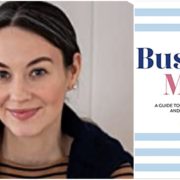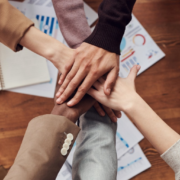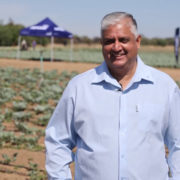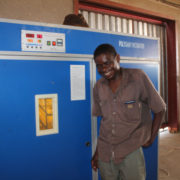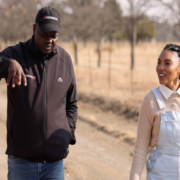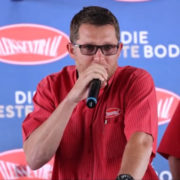by Lionesses of Africa Operations Department
…and so said Mark Carney the ex Bank of England Governor, now the UN’s special envoy on climate action and finance (here), and indeed he is right. To save the world; to ensure people continue to have homes, jobs and a future; to allow for a world where crops are not constantly facing drought one day and then hit by flood the next; to ensure that forests continue to provide habitats and local (and global) climate ecosystems – this all requires long, hard work from us all. Just to put it into further context, successive years of extreme weather events have plunged Madagascar into what WFP officials say is the world’s first climate-induced famine. Five years of consecutive drought compounded by sandstorms, as well as cyclones, an invasion of locusts and growing insecurity have created what World Food Program officials call the perfect storm. There is no magical green switch.
But this is not all, across the globe and indeed in Africa, there are far more occasions when high heat plus 100 humidity creates conditions whereby the human body simply cannot cool. Sweat simply does not evaporate. If we do not immediately stop work, find water and shade, our bodies become a self-fuelling furnace. If that’s not scary enough, we’re not sure what is!
As we discussed last week (here), the Courts (or certainly the Court in The Hague) are beginning to take climate action (or inaction) seriously. Taking the responsibility of that agreed at the COP21 by the various Governments and pushing it onto Royal Dutch Shell plc and emphasizing that it was also Shell’s responsibility to ensure their own suppliers and customers were taking action on Climate Change, means that more and more large multi-national companies will look to change their suppliers to those who do take sustainability seriously and make it central to their business (as per many within our membership), a huge opportunity – a Treat for Halloween!
The COP26 is now well underway and indeed in the first two days when the leaders were present, there was one headline announcement of significance and it concerned Deforestation…
As the FT said here: “A global commitment to halt the destruction of the world’s great forests, signed by more than 100 world leaders on Tuesday, was the first big deal of the COP26 climate summit in Glasgow.”
Brilliant news, everyone knows that forests are the lungs of the world and we only have to look at the effect deforestation has had on many of the world’s regions to know that something drastic has to be done.
“…But almost immediately, critics voiced doubts as to how the plan would be enforced, and whether it would prove more effective than previous commitments to end deforestation — a major source of global greenhouse gas emissions. “Signing the declaration is the easy part,” said António Guterres, secretary-general of the UN, which convened the COP26 gathering.” – FT.
Indeed, the New York Declaration on Forests in 2014, also contained a commitment to end deforestation by 2030…and that was quietly and sadly forgotten, and as we have recognised in our articles, without enforcement a law is simply a bunch of words on a piece of paper with no meaning or “Blah, blah, blah” as Greta Thunberg would say (here).
In fairness to the government signatories of 2014, The New York Declaration on Forests was a voluntary and non-binding international commitment. Please note the ‘non-binding’ part, because the Governments sure did!
“Under the Glasgow deal, countries that are home to more than 85 per cent of the world’s forests have agreed to halt and even reverse forest loss by the end of the decade. This was bolstered by pledges from 30 financial institutions to eliminate their exposure to agricultural commodity-linked woodland destruction by 2025. But the signatories, which include Brazil, Russia, Canada and Indonesia as well as the US, UK and other western nations, did not detail how the implementation of the agreement would be tracked, or what might happen if nations reneged on the promise.” – FT.
Almost immediately the FT’s words were found to be highly prescient as Indonesia announced the very next day that they had not meant to sign, it was a slip of the pen and anyway they were bullied into signing (here). For them there is no choice between feeding their ever growing population, the necessary growth (road building amongst other things) vs protecting their huge (3rd largest in the world) rain forest. To give you an idea of the sheer scale we are talking about, Indonesia’s rain forest is about the size of the whole of Egypt (give or take a few logging cabins and a couple of Pyramids). Countries such as Indonesia which appear not to be able to learn from the misfortune of others, should perhaps note that in the last few decades Madagascar has lost about 80% of its original forests (here). Hmmmm…
However, many do still believe there has to be this pay off between growth and agriculture, and forests, as Madagascar is not alone. We have seen over the past few decades, as forests are cut down so the delicate balance of the local climate ecosystem is shoved off kilter in other countries too. As the World Forest Organisation write (here): “Clearing forests has knock-on effects on ecosystem functioning and resilience is reduced. Ecosystem processes such as water cycles and groundwater supplies are negatively affected. Since trees trap moisture and encourage cloud cover, a loss in tree cover causes the local climate to become drier…”
The issue of course for all countries and especially in Africa is that Forests are an essential part of people’s daily lives. In Gambia the GEF point out that “the harvesting of wood for construction and for fuel wood, [is] an important source of energy for more than 90 percent of the population.” (here) and this is a problem across Africa. For wealthy western nations there is a huge lack of understanding of this issue as shown so often when looking at fuel usages across the world – when was the last time that Charcoal & Firewood even got a mention in amongst Nuclear, Coal, Solar, Wind and so on, as a global energy source? Yet Charcoal is one of the largest used fuels in Africa!
“Of course, I would prefer not making charcoal. It’s bad for my health, but it’s also harmful to the women who are using it to cook and it destroys the forest,” says one of the members of the Choma Charcoal Association in Zambia. “But what can we do? The reality is that we still depend on it, especially now that there is a severe drought. One of the dams is empty and electricity is becoming scarce, so more people than ever are relying on charcoal. I myself cannot grow crops due to the lack of water, so I need to survive and therefore, have returned to making charcoal.” (here)
Yet in Gambia, with careful management and working with the local farmers they have not only protected, but actually increased their Rainforest. Indeed this small country is THE ONLY country in the world to have been taking steps in line with The Paris Agreement. Given this country at one third the size of Belgium, which itself is not particularly large, has done this, shows that all of us, no matter how small, can do our bit.
On the frontline of Climate Change – to such an extent that the Gambia river now flows backwards from the sea as rising sea levels means the flow has reversed (reminder, further down the west coast of Africa – Lagos is only 1 metre above sea level), bringing brine deep into the country and ruining the soil, the Government of Gambia recognised the need for action and with no ‘Blah’, set up: ’Action Against Desertification’.
According to The FAO (here), “[d]esertification has resulted in a loss of nearly 100 000 hectares of forested areas between 1998 and 2009 in Gambia…
Since its launch in 2016, Action Against Desertification has been supporting …rural communities to manage forest resources and control land degradation and deforestation, promoting:
-
Community forestry management and restoration.
-
Joint management of forest parks.
-
Improvement of rural livelihoods (Beekeeping activities were actively pushed and supported – why not bring Mother Nature in to assist? Plus improved cooking stoves were produced and distributed to local villages, saving wood and importantly protecting the health of users).
-
Capacity development through a massive training push, focusing on restoration and plantation activities, and others centered on communication.
-
Awareness raising: promoting environmental protection in collaboration with youth clubs across the country.”
So what are our incredible membership doing about this? There is simply not enough room to discuss all of the inspirational Lionesses at the Coalface of Climate Change and battling against the incoming tide as there are so many, but three in particular come to mind working particularly in the saving of Forests, of Charcoal reduction and Climate EcoSystems.
As our friend in the Zambian charcoal industry above said: “It’s bad for my health, but it’s also harmful to the women who are using it to cook…”, Sarah Collins, an inspirational Lioness from South Africa has created and brought the WonderBag to Africa. Based on one of the oldest technologies in the world – heat retention cooking, this WonderBag not only saves money on the fuel source for cooking by up to 90%, but it also gives back approx. 6 hours a day of collecting of wood and cooking on fires all day. Just think of how food quietly cooking with no external heat merges and enhances the flavours a rushed cooking never could (mental note – could do with one of these at home!). But seriously – 6 hours a day saved collecting firewood and cutting the fuel by 90% – that is climate action on steroids.
See here her Lioness Weekender Cover Story and website.
Next up (and these are certainly in no particular order) is the incredible Lorna Rutto, the founder of EcoPost, a social enterprise created in response to the need to find alternative waste management solutions to Kenya’s huge plastic waste problem. Using this plastic waste she transforms these into commercially viable, highly durable, and importantly environmentally friendly fencing posts.
Just look at these incredible statistics from her website (here):
-
Over 3 million kgs of plastics recycled.
-
850+ acres of forest saved.
-
2,400+ tonnes of timber saved. Over 160 million kgs of CO2 emissions mitigated (calculated separately from the quantities of plastic recycled and the acreage of forest saved).
See here her ‘100 Lionesses’ Story.
Having so far looked at these incredible Lionesses solving the Charcoal/deforestation and health problems, and then plastics and deforestation, it is only right that we turn to a truly inspirational Lioness at the forefront of animal conservation – the renowned wildlife conservationist as well as an award winning social entrepreneur, Dr. Gladys Kalema-Zikusoka, the founder of Gorilla Conservation Coffee and also Conservation Through Public Health in Uganda, who was determined to find a solution that would help the economic futures of coffee farmers on the slopes of Uganda’s Bwindi Impenetrable Forest, while improving their attitudes towards conservation. As she says: “We wanted to stop them having to depend on the forest to meet their basic needs for food, to feed their families, or to collect firewood from the forest.” Her amazing Lioness Weekender Cover Story is here.
As Melanie said this week (here): “I firmly believe that, given our key role as the drivers of our economies and our communities, the ability to make the transition to greener business and lives lies with us…We all need to play our part in changing the ways we do business, reducing our environment footprints, putting sustainability at the heart of our business strategies. Young people are depending on us all doing the right things now, to ensure that they have a future…Ultimately, the path to Net Zero is all our responsibilities.”
Alone, the work of these incredible three Lionesses cannot turn the tide, but with them our massive community can make a difference and show the world that we are not of ‘Blah, blah, blah’, but of action. As the Chinese will know only too well (conspicuous in their absence from COP26), “Every long journey starts with a small step.”
In this and in combatting Climate Change, it is not the size, but the direction of our steps that matter and it is that direction towards net zero, exactly that “putting sustainability at the heart of our business strategies”, we would argue (with all due respect to Mark Carney) that can be changed with a flick of a switch.
Stay safe.


